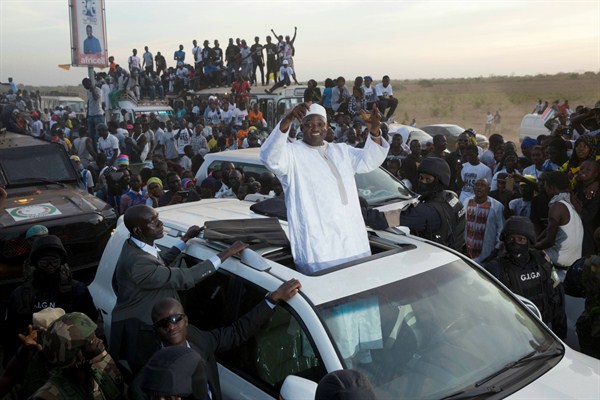Gambia’s new president, Adama Barrow, finally returned to the country yesterday, his arrival formally marking the end of a six-week political crisis. Barrow was elected president on Dec. 1. He initially received a concession call from his opponent, Yahya Jammeh. But Jammeh, in power since 1994, reversed course within days. Refusing to step down, he instead attempted to use various forms of intimidation and legal maneuvering—a state of emergency, a parliamentary extension of his powers and a legal suit—to block the transition.
West Africa’s regional bloc, the Economic Community of West African States (ECOWAS), responded quickly and forcefully. Demanding that Jammeh step aside by the constitutionally mandated inauguration day, Jan. 19, ECOWAS first pursued mediation, led by Nigerian President Muhammadu Buhari. When mediation alone faltered, ECOWAS prepared a military intervention. As Jammeh held firm, ECOWAS organized the inauguration of Barrow at the Gambian Embassy in Senegal—technically, the embassy is on Gambian soil—and recognized him as Gambia’s president. ECOWAS simultaneously began to launch its intervention, sending Senegalese troops into Gambia and securing the backing of the African Union and the United Nations Security Council. Finally, with Senegalese tanks on the streets of the capital, Banjul, Jammeh agreed to accept exile. He left Gambia on Jan. 21.
Do ECOWAS’ actions in Gambia’s crisis show a growing willingness by the bloc to use force against West African leaders who overstay their welcome? Likely not. The overall trend in West Africa from the past decade suggests that ECOWAS takes political crises case by case, and that its default mode is to proceed cautiously.

